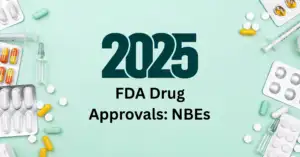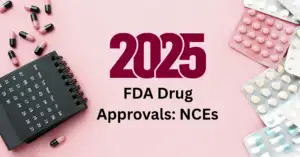The process of obtaining a reference drug or comparator drug product for use in a clinical trial is referred to as comparator sourcing for clinical trials. A comparator drug is often required as a control/ reference treatment group in clinical trials to examine the safety and efficacy of the test formulation. Overcoming challenges in the comparator sourcing for clinical trials involves navigating complex regulatory environments, ensuring the authenticity and quality of the comparator drugs, and managing supply chain logistics on a global scale. Efficient global comparator sourcing is crucial for the success of clinical trials, as it ensures the availability of appropriate comparator drugs that meet stringent regulatory standards and support the validity of trial outcomes. Effective strategies in comparator sourcing for clinical trials can significantly impact the timeline and reliability of research findings, ultimately contributing to the advancement of medical science.
Comparator sourcing for clinical trials present several challenges, including:
- Regulatory constraints: Regulatory requirements for different countries for conducting a clinical trial. Most of the countries require special permits and failure to obtain such permits can be very difficult and can result in delays and sometimes cancellation of such permits. Apart from the regulatory compliances, there are few other important factors that influence comparator sourcing.
- Availability: The availability of the comparator drug can be a problem, particularly if it is a specialty medicine or classified as a rare drug of rare disease. Finding a trustworthy comparator drug supplier that can supply the needed quantity of medicine can be difficult.
- Quality assurance: Determining the efficacy of the comparator drug is important to the trial’s success. Sourcing from a genuine source guarantees quality product. It is important to work with sourcing partners who understand and adhere to quality norms in compliance with the GMP principles.
- Cost: Obtaining a comparator drug can be costly, and the cost of the drug can have an impact on the overall budget of the clinical trial. Negotiating pricing and volume discounts can help you save money; however, one should not compromise on the quality aspects.
- Time constraints: Clinical trials have rigorous timeframes, and delays affect the overall study timelines and have financial impact. Availability of comparator drugs is one of the key components and delays in its sourcing and procurement result in substantial difficulties. It might be difficult to ensure timely drug delivery, especially when dealing with international suppliers or when unanticipated complications emerge. It is advisable to work with genuine supplier with a track record.
- Logistics: Managing the logistics of comparator drug sourcing can be complicated, involving several stakeholders and the possibility of delays. Effective and efficient supply chain management, including shipment tracking and monitoring, is critical to the comparator drug supply promptly and ensure safe delivery.
- Authenticity: Ensuring the authenticity of the comparator drug can be difficult, as fake or counterfeit drugs can endanger the trial’s safety and efficacy. Verifying the drug’s legitimacy can be time-consuming and may necessitate the use of additional resources.
To overcome these challenges it is important to work with established and genuine sourcing partners.
Here are some strategies for overcoming the challenges in comparator sourcing for clinical trials:
- Ensure regulatory compliance: Country specific regulatory compliance is crucial for comparator sourcing. One should familiarize with the country-specific requirements for clinical trials and plan accordingly.
- Initiate promptly: To allow ample time for logistics in the supply chain, quality control checks, and regulatory compliance, comparator drug sourcing should begin early in the planning stage of clinical trials.
- Execute quality control procedures: To guarantee the reliability and potency of the comparator drug through the clinical trial, quality control methods should be put in place, such as batch and stability testing.
- Explore cost-effectiveness: Comparator sourcing can be costly, therefore, consider cost-effective strategies in choosing the comparator drugs supplier. Negotiating cost and volume reductions can assist in lowering the overall cost of comparator drug sourcing.
- Find a trustworthy supplier: For the comparator drug to be delivered in a timely manner and with high-quality consistency, a reliable comparator drugs supplier is essential by doing a thorough examination of potential suppliers based on their experience, standing, and quality requirements.
- Handle supply chain logistics: It is critical to manage supply chain logistics to guarantee prompt and economical delivery of the comparator drugs to the clinical trial location. This includes monitoring the inventory, tracing the drug’s transportation, and ensuring adequate storage conditions.
- Validate the comparator drug’s authenticity: To reduce the risk of utilizing counterfeit or inferior drugs, it is important to confirm the medication’s legitimacy. A third-party authentication service or internal testing of the drug’s legitimacy can be used to do this.
Clinical trial funders can guarantee the comparator drug’s effectiveness, safety, and quality while remaining cost-effective by employing these measures.





